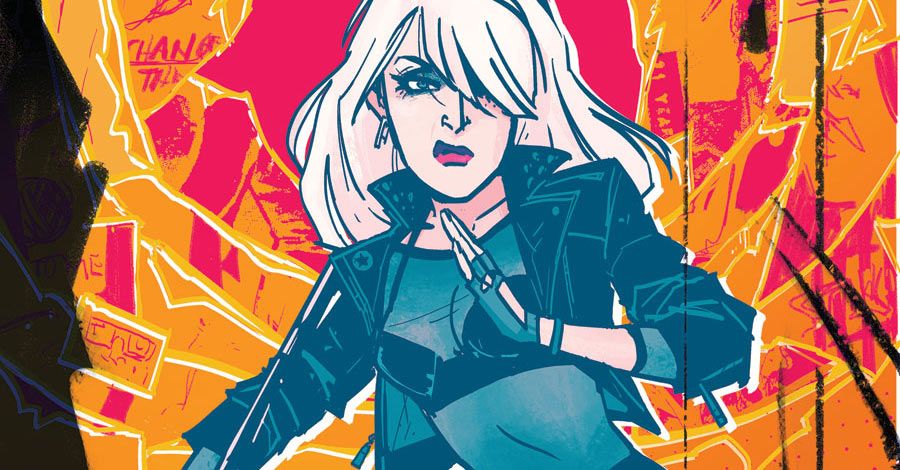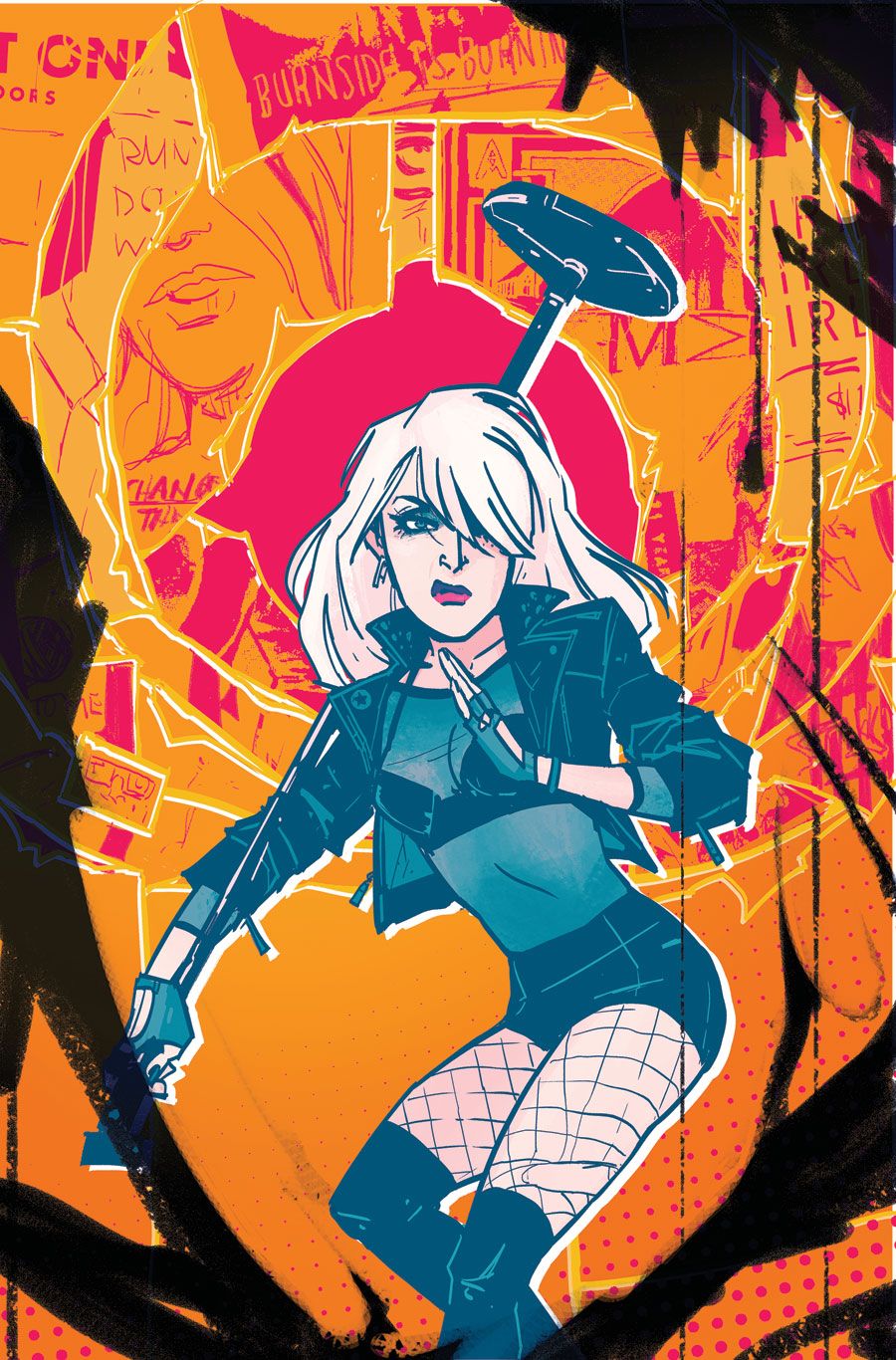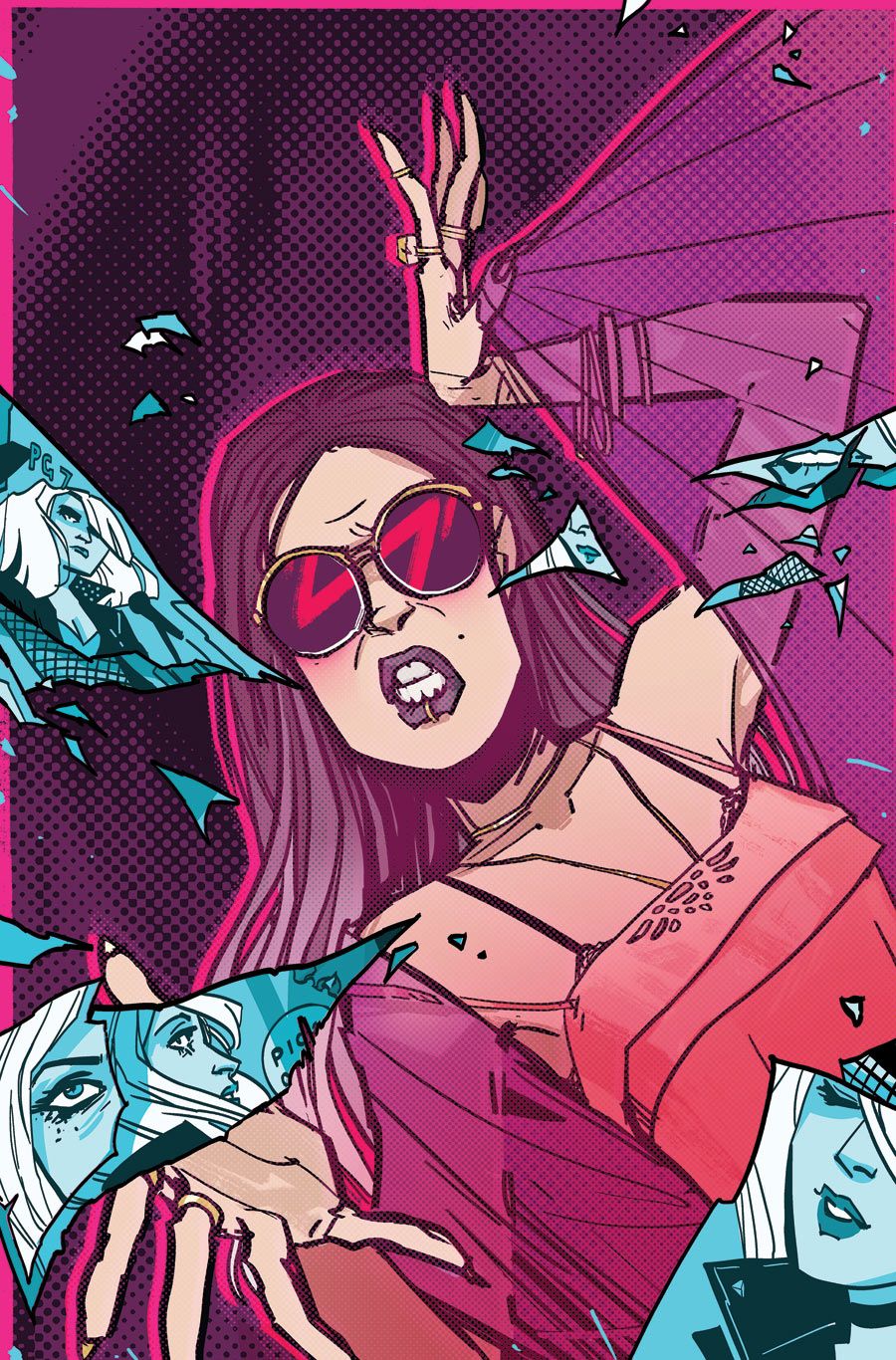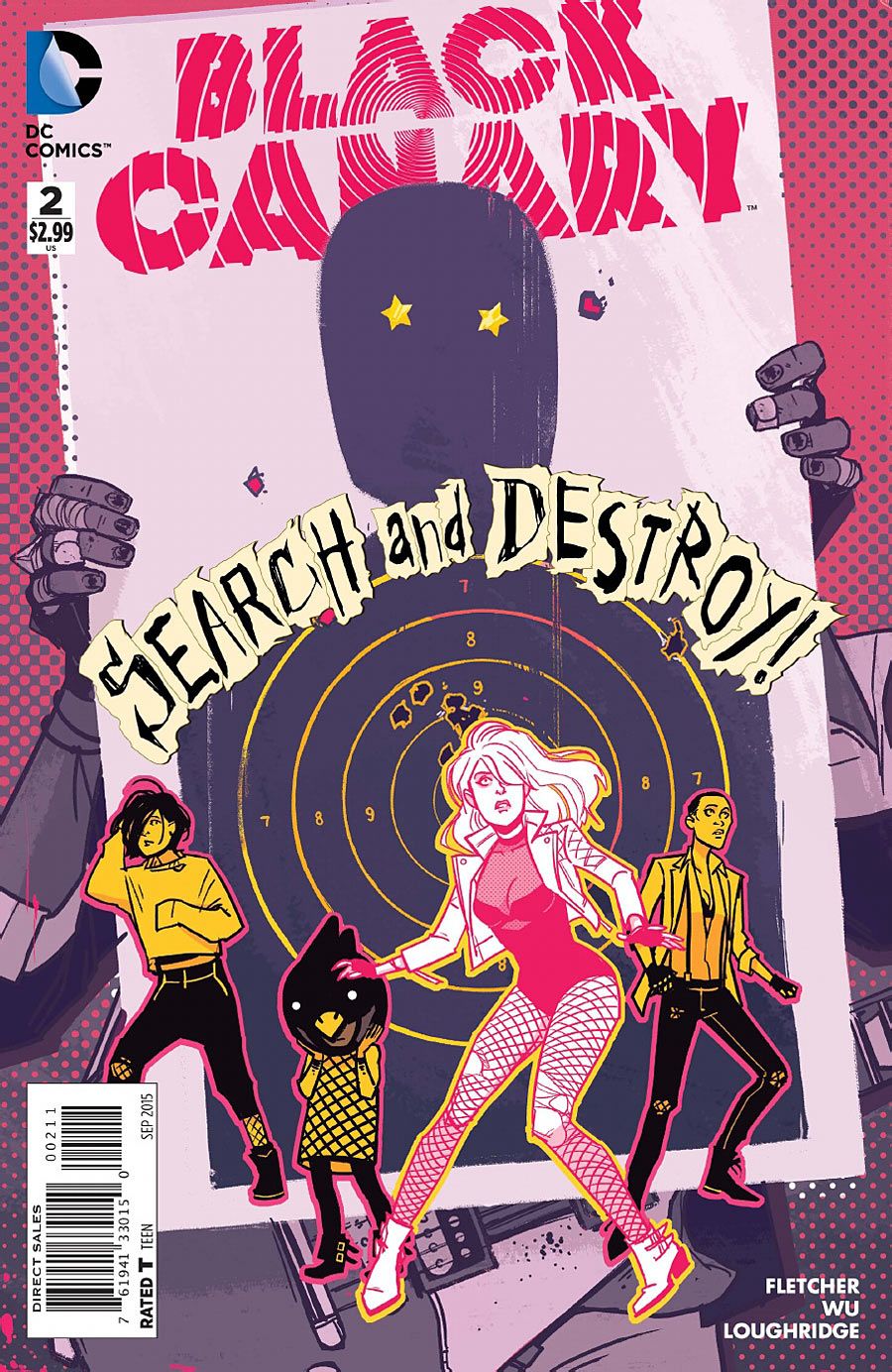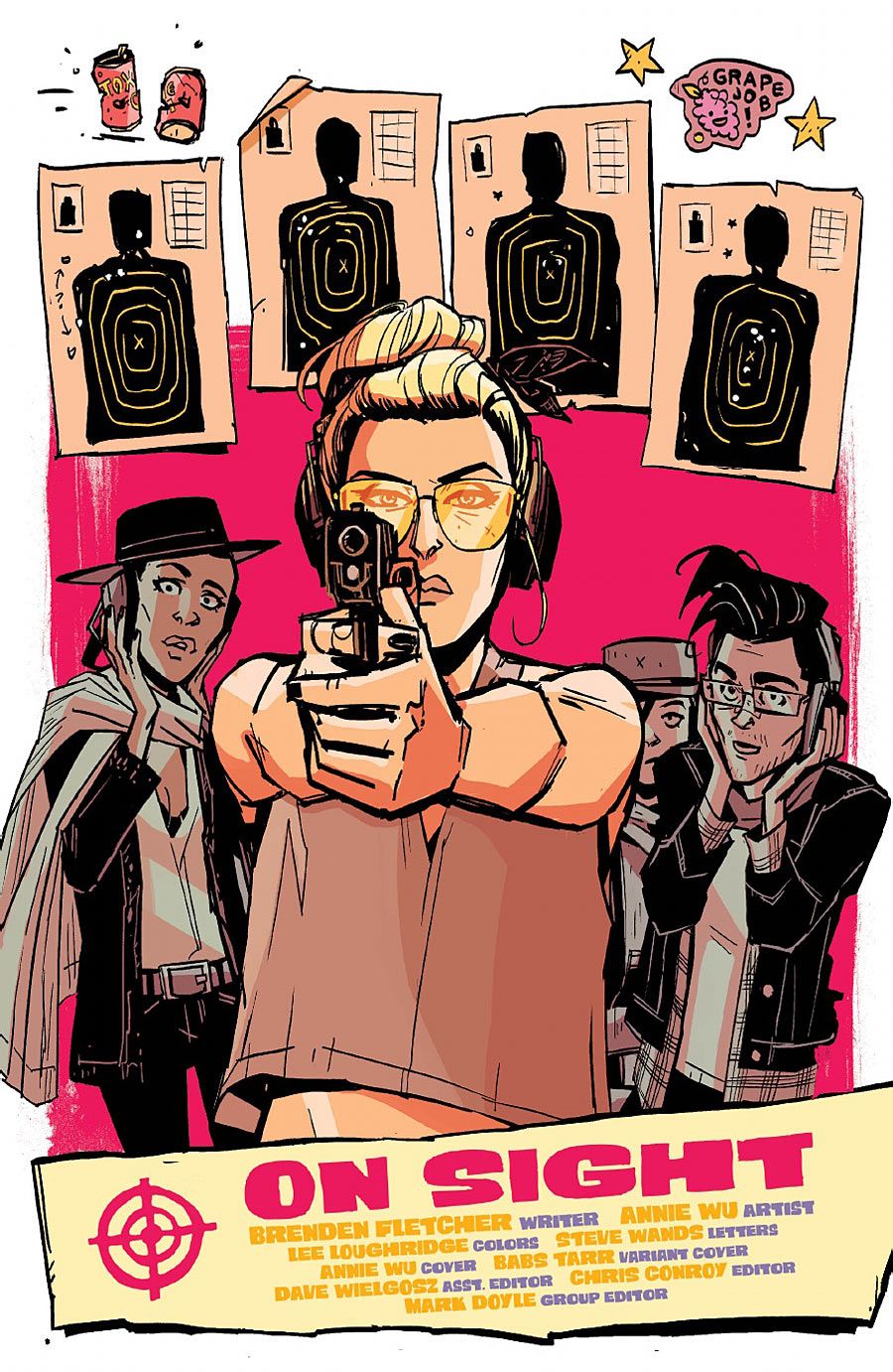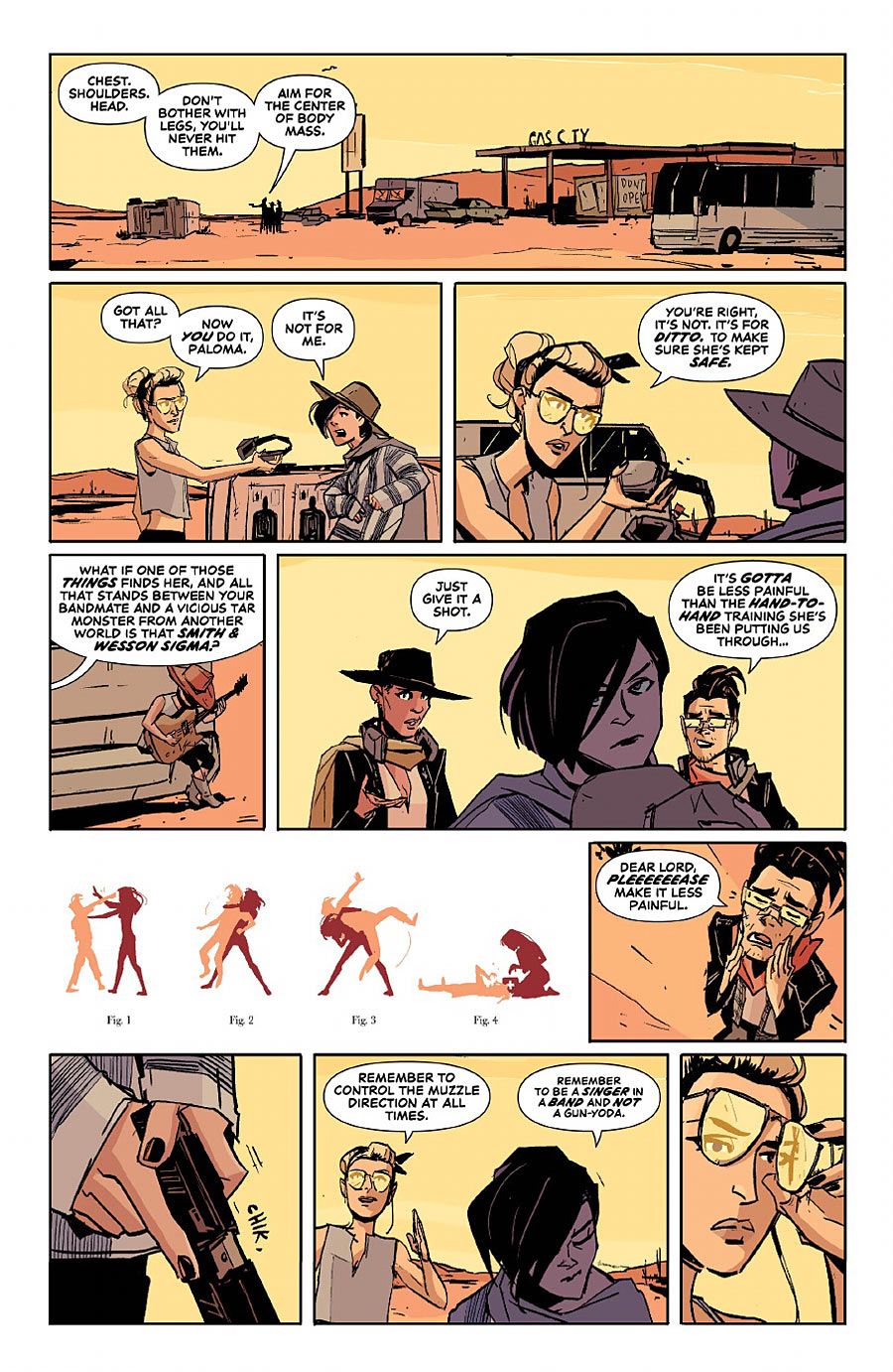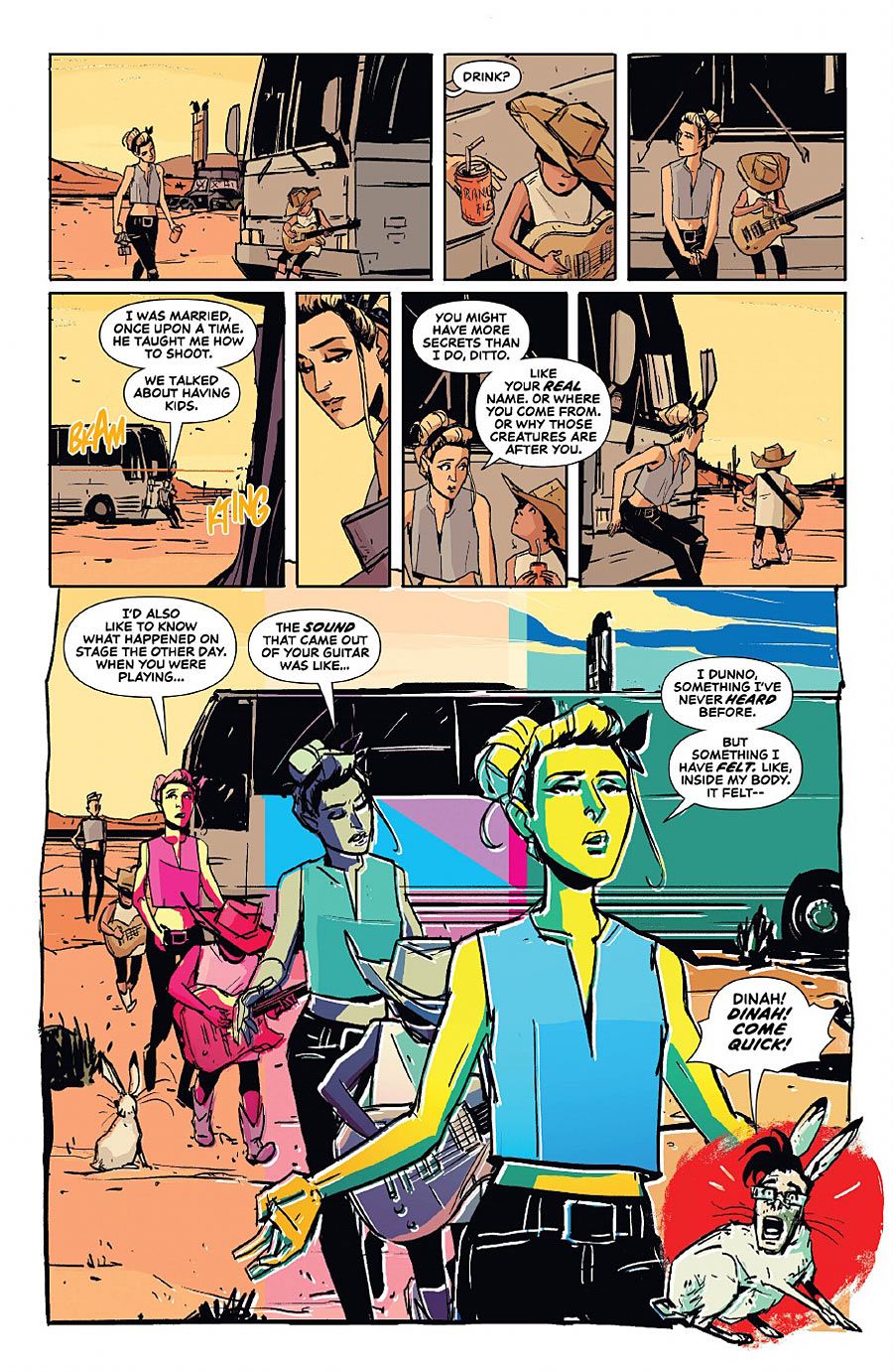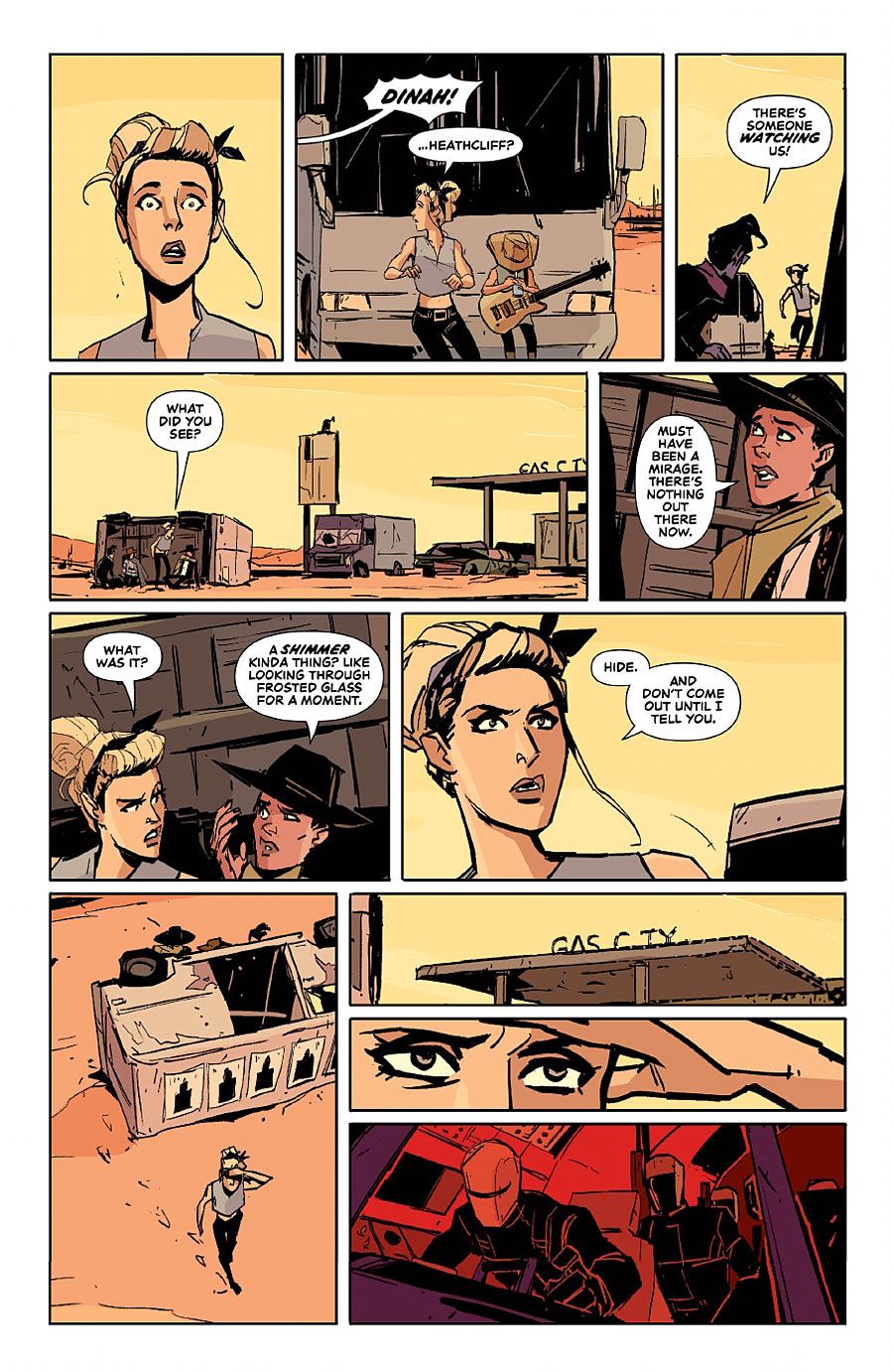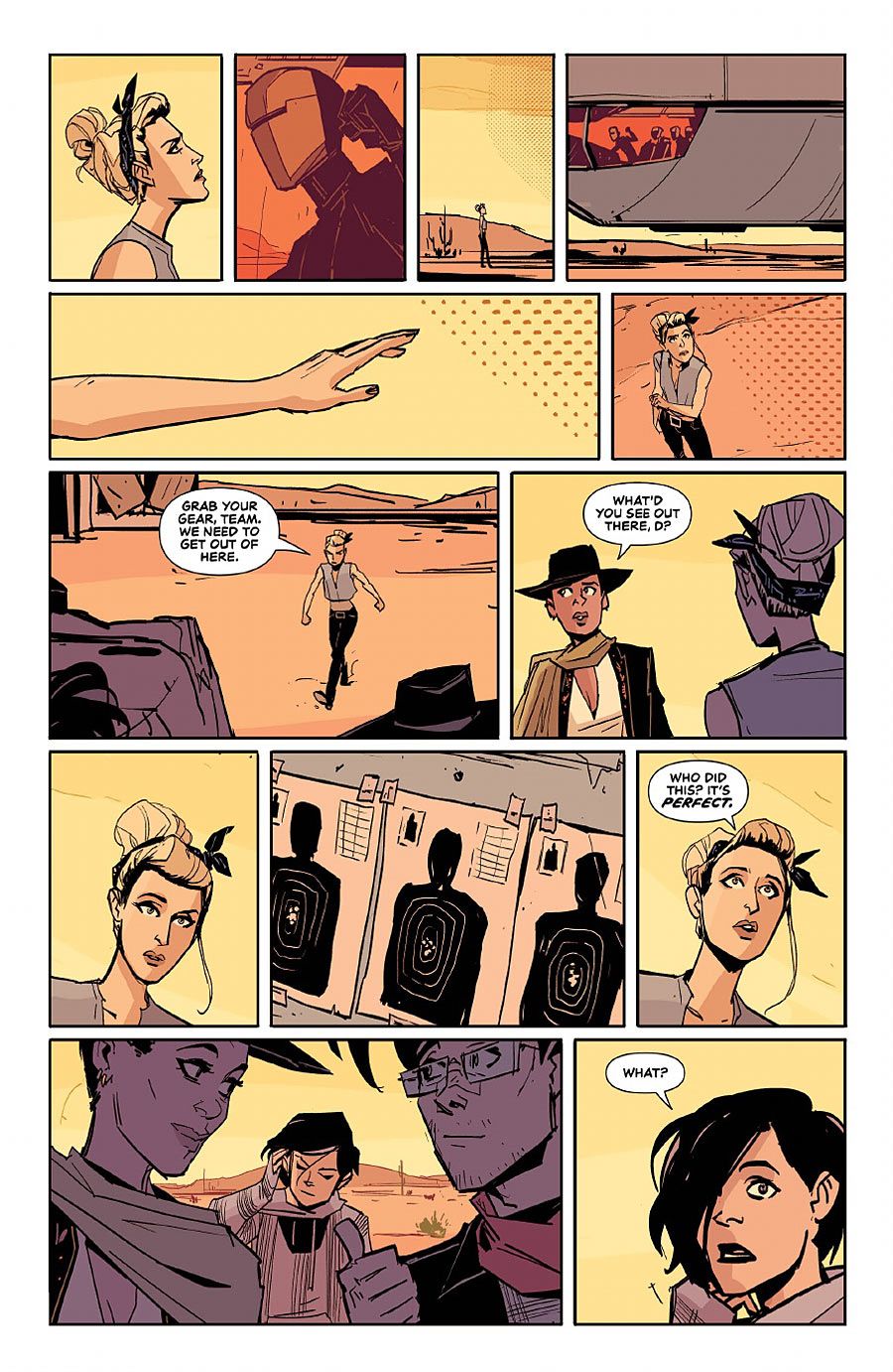Brenden Fletcher was already co-writing breakout hits "Batgirl" and "Gotham Academy" for DC Comics, but when he pitched his "kung fu, rock and roll road trip" high concept for "Black Canary" it allowed him to tap into his own past as a professional musician. And once the writer received the go-ahead from the editorial braintrust, Fletcher had only one choice for his collaborator on the series: artist Annie Wu, who delivered killer interiors for Marvel's Eisner Award-winning "Hawkeye" after transitioning to comics from television, having previously served as a storyboard artist for "The Venture Bros."
First reimagined for the New 52 in "Batgirl," Dinah Lance is now fronting "the most dangerous band in America," which makes perfect sense when you consider her trademark superpower is the Canary Cry -- a sonic vibration that can decimate whatever (or whoever) stands before her.
SDCC: DC's Upstarts Talk "Black Canary," "Midnighter" & More
Black Canary was originally introduced in "Flash Comics" #86 in 1947, and Fletcher re-read early issues of "Justice League of America," as well as multiple volumes of "Birds of Prey," to find the core of the 68-year old character. Fletcher then shared that valuable insight with Wu, who was admittedly not too familiar with the Robert Kanigher/Carmine Infantino creation.
That's okay. Anyone who has seen Wu (or her artwork) knows the artist oozes style and when she cranks David Bowie for inspiration while penciling "Black Canary," you know it's so natural (if not religiously unkind).
CBR News connected with the creative team and Fletcher shared which science fiction icon also inspired his reimagining of Black Canary while Wu revealed Dinah's history as a sensei at a dojo is one of the things that really intrigued her about the character. Fletcher also teased that "Black Canary" #3, which is scheduled for release August 19, will reveal how Kurt Lance -- found laying unconscious by Dinah and her bandmates at the end of the last issue -- is connected to the alien-like monsters that disrupted a Black Canary concert in the debut issue.
CBR News: So DC Comics says do you have a pitch for "Black Canary" And you say, yes. She's Joan Jett and she is fronting the Runaways circa 1976. Bo Maeve is Cherie Currie. Oh, and there are monsters like the ones Ripley faced in "Alien" in 1979. And black ops agents tracking the band. And DC says, "We love it!"
Brenden Fletcher: Jeff, you pretty much nailed it right there with the exception of the period. [Laughs] If Annie and I could have gotten away with the book set in the 1970s, we probably would have but unfortunately, it takes place in present time. We'll just give our nods to the seventies whenever we can.
Actually, my pitch to Annie, as well as DC, was a "kung fu, rock and roll, road trip." And that got enough heads nodding at DC that I was allowed to move forward with it and actually create a full pitch. They gave me the go-ahead to get in touch with Annie, who was my only choice, to take this to series.
Obviously, it was also an outgrowth of what we were doing with "Batgirl." Dinah Lance, who was known as Black Canary the crimefighter, was a supporting character in "Batgirl" and Cameron Stewart, my co-writer on "Batgirl," needed to find something to do with her that didn't put her in the same superhero mold that she had been in, because that would mean that she would be partnering with Batgirl again, which just makes the book, "Birds of Prey." And we didn't want to do "Birds of Prey" all over again. We wanted to find Dinah something different to do and we ended up putting her in a rock band, which seemed to fit given that her superpower is an incredible scream.
And after we planned out that first arc, it just became clear, at least to me, that there was more a lot more to be said about Dinah being in a rock band. It was sort of background in "Batgirl." We didn't get to do enough with it. And I think the editors at DC felt the same. With that pitch in mind, saying we were going to put her on tour and that there was going to be a lot of martial arts, and imagining it along with Annie's art style, I think that was a pretty easy sell. The toughest part was just making sure that Annie was getting onboard.
Annie Wu: Before we met, Brenden didn't tell me what he was actually approaching me for until we were actually face-to-face. [Laughs] I had a lot of difficulty hiding how excited that I was. It sounded so weird and so amazing. And there were going to be so many opportunities to have fun with it not only story-wise but aesthetically. I was pretty excited about it right away.
"Black Canary" and "Batgirl" Teams Talk Converting New Readers, Future Butt-Kicking
Annie, you have such a unique style and feel. The book almost feels like you are at a concert. It's so kinetic and raw. What are you going for in terms of the art?
Wu: I am definitely a little bit more open to trying out weird ideas. If I have a weird thought about a way to approach a panel or a page or a moment, I am a little bit less resistant to giving it a shot and seeing what happens. There is a little bit more experimentation in this book than I have usually done in the past. But yes, we are doing everything that we can to make it feel a little bit more energetic and unusual and weird and fun.
Fletcher: It also feels like a jam. I come from a musical background. And sometimes you do shows where the whole band practices and you get really tight and you play a song just so. And there is the kind of gigs where you know the broad shape of a song and then you jam it out for 10 or 15 minutes. Some of what we're doing on "Black Canary" feels a bit like a jam. Annie and I are always throwing things back and forth. Annie comes up with great beats that are in the script. I am trying to leave space for her to play on things.
We also have Lee Loughridge, who is doing an amazing job on colors by bringing to life parts of the imagery that we were anticipating. And Steve Wands is killing it on lettering and really delivering the books aesthetic. He's a great part of the reason that the 'zine thing is able to play as successfully as it does.
Over the past few months, especially since the release of "Mad Max: Fury Road," the portrayal of female characters in movies, television, novels and comics has really been under the microscope. Beyond reimagining Dinah Lance as a kung fu kicking rock star, what did you really want her spirit and essence to emote and represent?
Fletcher: We started from a base of trying to figure out who Dinah Lance had been in comics for years. She is a character that has been represented in so many different ways. She has been around for a long time. She has, in fact, been her mother at some points. She has been the daughter of a Golden Age hero. She's been transformed so many times and what we are trying to do is find the heart of the character -- the most iconic version of who Dinah Lance is. Despite the reinterpretation of her and her character through the lens of the New 52 and despite the fact that we are putting her in a new set of circumstances. This is all very challenging stuff.
I have been reading old issues of "Justice League of America" and there are so many different eras of "Birds of Prey" that are feeding into this. I even really like how she is portrayed in the "Young Justice" cartoon and the "Justice League Unlimited" cartoon.
You mentioned Ellen Ripley and I really used her as a touchstone for putting together this version of Dinah and who she should be. And I love, like you said, that "Mad Max: Fury Road" has brought this conversation to the fore again. I think it's very apt as we move into our third issue -- maybe I will just leave that right there. [Laughs]
Wu: I agree that there are a lot of different parts to her because she has such an extensive history. I wasn't that familiar with the character before jumping on this book so I had to do a lot of homework. And Brenden and I really discussed what Dinah was like at her core. After a while, I realized that she is a protector, she is a teacher and she's also a totally lethal bad ass. And she's also funny and caring. If you take pieces of that and the part of her background where she ran a dojo as a teacher and as a protector, you ask yourself, what does it take to do something like that?
How Dinah acquires her Canary Cry has been reimagined several times in comics. Does this version have a new "secret origin" as well, and if so will it be explored?
Fletcher: In fact, this arc is an exploration of who she is as a superhero. She's not just somebody who is drifting through life in a rock band. Dinah has been a hero for years and years, whether it's been as sensei in a dojo or a team member in the military or a leader in the Birds of Prey but she has secrets. And some of those secrets involve how she went from being a hero to a superhero and those are things that we are definitely examining over this first arc. And you will get answers!
RELATED: Stewart, Fletcher & Tarr on the Unbridled Fun of "Batgirl"
Dinah says she did "like half a mission" with the Justice League. And you just mentioned that she was also the leader of Birds of Prey. Right now she has to train Heathcliff, Lord Byron, Paloma and Ditto in hand-to-hand combat and weapons. But what does the band give back to Dinah in terms of support?
Fletcher: I feel that Dinah really shines when she is in the leadership role. We definitely don't want to put her in another Birds of Prey at the moment. It can't be her leading a bunch of superheroes. But again, I think we see Dinah at her best when she has a group of people to lead, to teach to protect and that's what the band is. The band gives her people to be close to and people to open up to. And also, from a technical standpoint, they give Annie and I people for her to talk to have and share scenes with. It would be a pretty boring book if it were just Dinah Lance roaming the countryside on her own fighting odd baddies. Actually, I guess you could build drama around that too. It would be like the old Bill Bixby "Incredible Hulk" show.
Wu: That would be pretty good, actually, if she turned into a feral mountain woman.
While this book feels completely out on its own, you've mentioned the Justice League, Birds of Prey, and in final pages of the second issue, we meet Kurt Lance -- Dinah's husband from Team 7. We also get this line: "If the people he works for are after us, we're in greater danger than I thought." How is Kurt connected to what's hunting Dinah and the monsters that we saw in "Black Canary" #1?
Fletcher: Kurt Lance is in fact connected in some way to those creatures that we saw in "Black Canary" #1. That's something that we're actually going to reveal in #3. And it might be what you are expecting. I don't want to spoil it for anybody but I will say this, the issue is wall-to-wall action.
Wu: Oh yeah. It's for sure the most exciting of the three issues that we've done so far.
"Black Canary" #3 by Brenden Fletcher & Annie Wu is scheduled for release August 19 from DC Comics.

